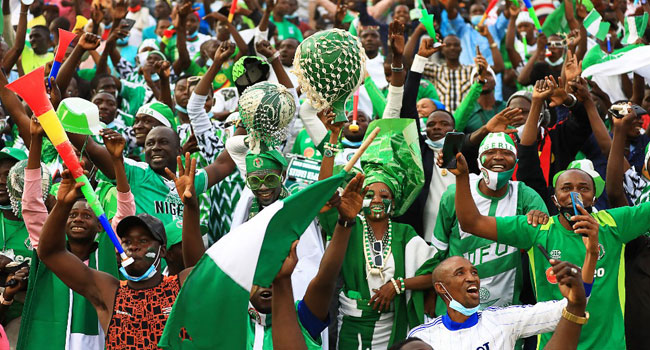African culture is often portrayed through two lenses: an impoverished and dry continent, or a lively collection of rich and diverse people that vary from country to country. When diving deeper than the media’s portrayal of African countries, I found that most countries have a distinct culture specific to their people alongside relevant political and physical issues. In Nigeria specifically, peoples are celebrating a beautiful and colorful culture. However, despite Nigeria’s bountiful culture, it does suffer under poverty.
Compared to much of Africa, Nigeria has a noticeably high poverty rate. According to a poll done by Statista, Nigeria, among African countries, is the highest share of global population living below the extreme poverty line in 2023 at 11.9%. According to The World Bank, as many as 4 in 10 Nigerians live below the poverty line. These statistics shed a startling light on how poverty unfortunately has a grasp on the nation. Homelessness follows these statistics at around 26%, leaving so many innocent lives left without shelter and struggling to find basic necessities. Thankfully, many charities are acting in Nigeria to combat this struggle. Save the Children, Lagos Food Bank Initiative, TASTE Nigeria, and so many more charities have been fighting back to stop poverty. Through their support, Nigeria’s poverty numbers can be cut back and those unfortunate individuals can be brought into a better life.
While poverty does seem to control Nigeria, their culture is far from taken over. One of the first noticeable things about Nigeria comes from their colorful clothing. Nigeria as a whole cannot be grouped into one culture, as it is made from over 350 different ethnic groups including the Yaruba, Hausa, Igbo, Fula, Okobo, Ijaw, Bolewa, and many more. Each group has its own distinct cultural clothing and norms; for example, the Yaruba men wear agbadas for formal events such as holidays and celebrations while women wear a kaftan. Beside the traditional reasoning beside these and many more, these garbs have earned Nigerian fashion a top-ranking spot among the world.


Images from MgKente and Pinterest
Nigeria’s diet appears to be as bright and colorful as its culture. Much of its fruit comes from tropical fruits of pineapple, coconut, banana, and mango. If visiting Nigeria, you may come across a variety of coconut rice pudding or plantain chips to satisfy your hunger. The country also has many varieties of desserts such as the fried dough treats of puff puffs, shuku shuku (coconut balls), or donkwa. A majority of the Nigerian diet consists of rice, beans, corn/corn meal, meat, and vegetables. Each dish seems to be different from the next with a variety of different spices such as beef suya (smoked, spiced beef skewer), Nigerian egg rolls (deep fried boiled egg), or dodo (fried plantain).

Donkwa, Image from Slurrp
Despite Nigeria’s multitude of ethnic groups, the country has a very connected culture through sports. Nigeria’s football team has immensely connected the culture in ways that American football brings together the United States. The country must have been in an uproar when their team won the Africa Cup of Nations three times.

Image from Channels Television
The poverty that corrupts Nigeria seems to seep through its beautiful culture. Action is being taken to combat poverty and help those who are homeless or struggling. Even still, Nigerians continue to celebrate their culture through food and sports with dignity and pride.
I really like how you chose to highlight a culture that often gets pushed away from public eye. I appreciate how you broke up different topics within the culture and included pictures. I am happy to know more about this culture and I’m excited to see what you write next!
I enjoyed reading how you described a culture that has a certain portrayal in the media but there is so much more to that than what meets the eye. I enjoyed how you highlighted different topics within their cultural and the pictures as well. I appreciated learning more and look forward to reading about the next culture soon!
Hi! I really liked reading this piece about Nigeria. It was interesting, informative and captivating. The photos also added a great visual element to the piece. I look forward to your next post!